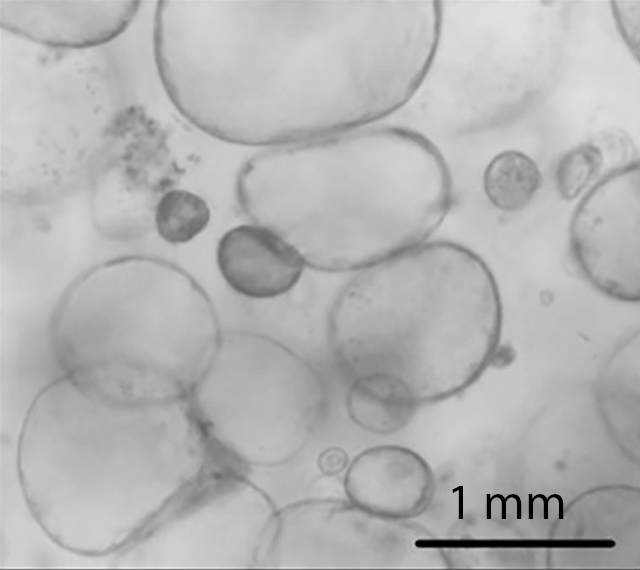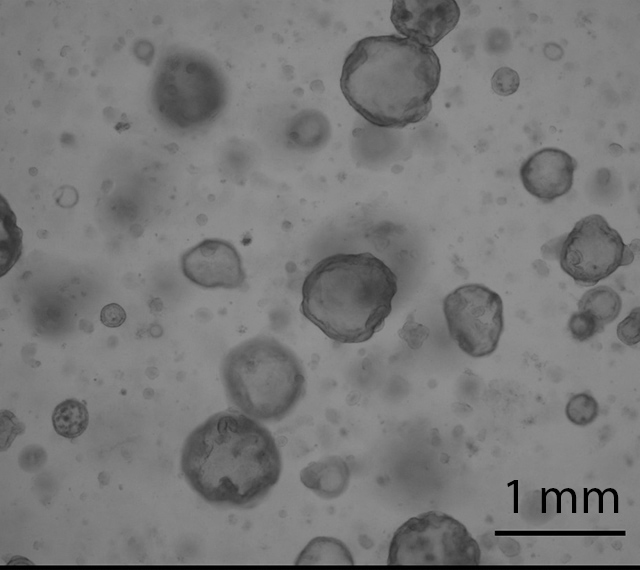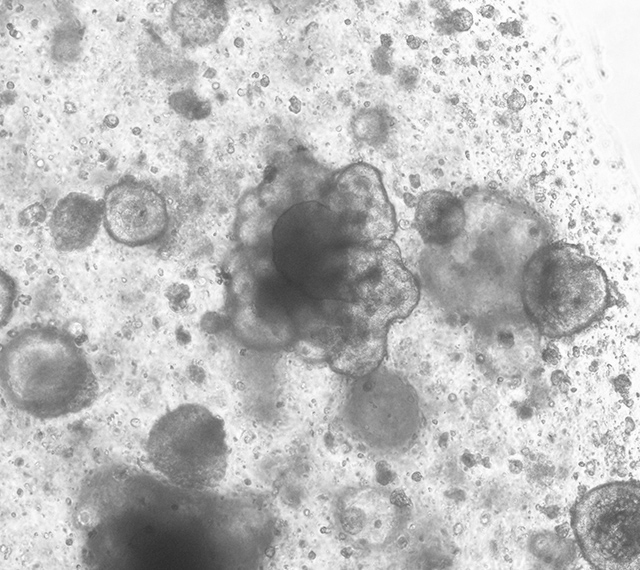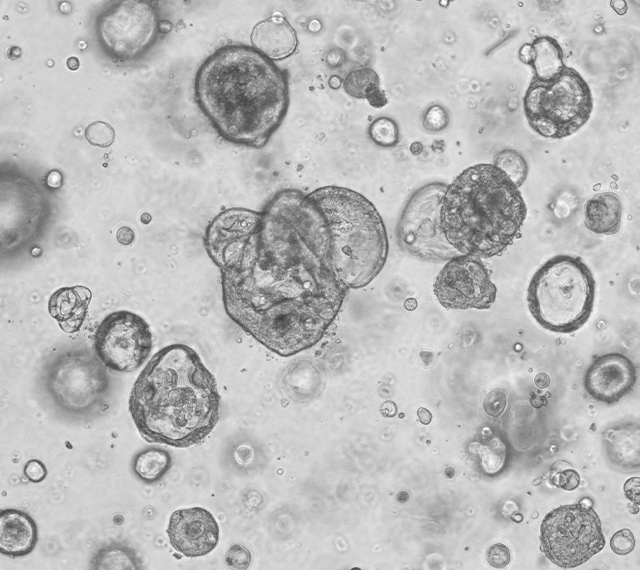Organoid is a miniature in vitro three-dimensional (3D) structure obtained from Adult Stem Cells (ACSs) or Pluripotent Stem Cells (PSCs). They possess self organized structures in an ordered design mimicing an organ’s natural form, which is why they are called ‘mini-organs’. Notably, organoids closely recapitulate particular organ functions and have more than one type of cell that is unique to that organ. (Lancaster M. & Knoblich J., Science, 2014; Clevers H., Cell, 2016; Lancester M. & Huch M., Dis. Model. Mech. 2019)







